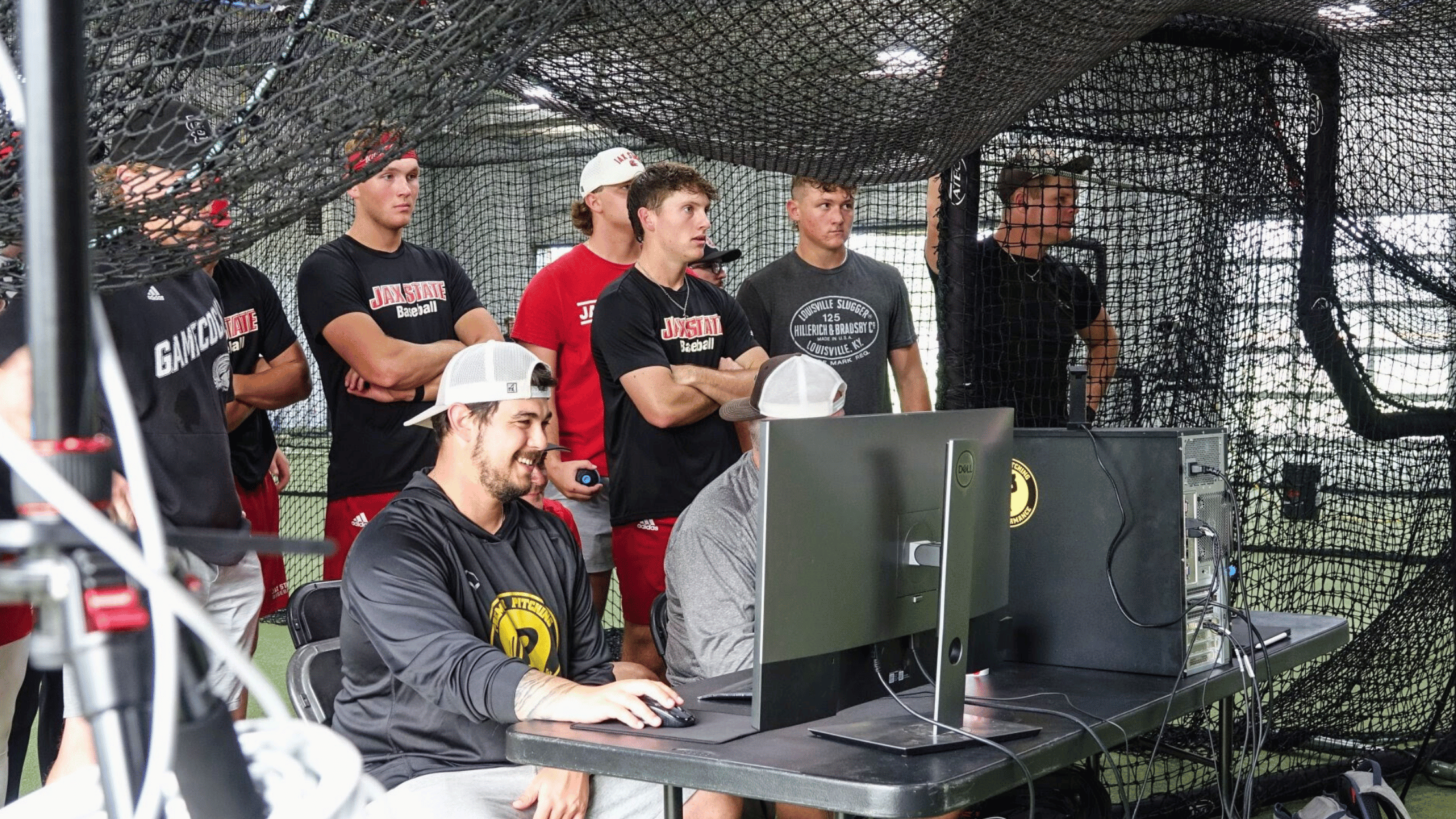On-Ramp Program Strategies for Building Arm Success and Longevity
As Spring rapidly approaches, our athletes at Premier Pitching Performance (PPP) are also gearing up by increasing both intensity and workload in their off-season training. This pivotal time calls for focused attention on one of the most crucial aspects of your training: the on-ramp.
We sat down with our Director of Pitching, Cody Fick, to discuss the importance of a high-quality, on-ramp program. We’ll also cover some strategies to incorporate into your programming to safely and effectively build arm strength as you approach the season.
What is an On-Ramp Program?
As a baseball athlete, training periodization and proper programming is essential. Not only do you need deloading after a strenuous season workload, you also need to slowly reintroduce intensity and volume into your throwing schedule. This is the primary purpose of the on-ramp.
Fick explains its importance,
“The on-ramp phase typically occurs after a deloading period and right before players get back on the mound– it ensures your throwing fitness is at a level that can meet the demands of in-season performance."
Without the foundation of the on-ramp, critical aspects like velocity development and high-volume mound work cannot be effectively tackled.
The timing of the on-ramp is just as critical as its implementation. Since each baseball athlete has a different competition schedule, it’s essential to work backwards. For high school athletes, for example, this might mean starting on-ramp in November or December, while professional athletes may begin earlier.
Breaking Down the Elements of an On-Ramp Program
A quality on-ramp program begins with a thorough understanding of the athlete's current condition, future goals and potential limitations.
Here are some considerations for your on-ramp program:
Assessing Physical Health & Movement Mechanics
A detailed injury history along with a biomechanical assessment can highlight any predispositions that might influence your training.
For example, a player with a previous injury may have a different on-ramp approach. Fick explains,
“First, we want to understand the injury and the cause of that injury… then, we go through a return-to-throw program so they are recovering well between throwing sessions.”
Fick stresses the importance of restoring injured players to baseline health and then addressing underlying movement issues.
At PPP, our high-tech, motion capture technology and assessment tools can also help non-injured athletes. By breaking down each athlete's kinematic sequencing, we can evaluate players on an objective level.
This technology allows us to identify range of motion issues or muscular imbalances that may eventually affect the arm and the longevity of a pitcher’s game. By prioritizing an athlete’s overall health, PPP helps our athletes stay ahead of potential problems.
Defining Each Player’s Goals
Whether it's increasing velocity, endurance or preventing future injuries, having clear objectives is crucial for program design. High school, college and pro players will all have different goals and levels of experience. Therefore, they will all have a different approach to arm building.
Fick explains PPP’s approach to training goals,
“With more experienced pitchers, you can get deeper in development with things like overload and underload training. Whereas with a beginner, our goal is get them on a solid, consistent schedule so they can naturally build arm strength.”
Considering Time Commitments
Understanding the athlete's availability and ability to commit to regular training sessions is crucial. Fick always consider’s his athletes time management in their on-ramp program so that they can execute a throwing and lifting program consistently.
At PPP, we work with our athletes to create a schedule that balances their personal commitments with their training needs, ensuring a program that is both realistic and effective.
Periodized Approach to Arm Care and Strength Building
Because each player's goals are different, their training and strength plans should also reflect that. Fick highlights the necessity of personalized, on-ramp programming,
“Arm care is not a one-size-fits-all. It is based on throwing schedules– how often, how much and intensity of throwing. Those same principles also apply in the weight room. A good arm building program takes all those things into account.”
This holistic approach to arm building extends beyond the mound. An on-ramp program also includes proper warm-ups, pre-throw/post-throw exercises, along with weight room performance.
The key lies in a periodized plan that incorporates all these elements harmoniously.
Common On-Ramp Training Pitfalls
When considering your on-ramp training program, it’s essential to avoid rushing into intensity too fast.
Fick warns, "The biggest issue I see, and I feel pretty strongly about this, is that guys tend to go too hard too fast.”
Instead he advocates for a gradual progression that helps athletes understand effort levels and appropriate volume. By providing players with different feedback loops to help them understand arm speed, intensity and other factors, their throwing becomes more sustainable and effective.
"You can’t overcome a poor month of on-ramp with two weeks of good work," Fick reminds us, underscoring the need for diligence and consistency.
Integrating a Holistic On-Ramp Program With the Help of Premier Pitching Performance
Building a successful and sustainable on-ramp program for pitchers requires a multifaceted approach that addresses each individual’s differences through assessment, customized training prescriptions and consistent commitment.
By integrating these elements, Premier Pitching Performance can enhance its program, ensuring athletes not only achieve peak performance but also maintain it with minimized risk of injury. This holistic approach lays the foundation for success and longevity in the highly demanding world of competitive pitching.
Start your on-ramp journey today by filling out the form here to get started with PPP’s signature pitching assessment.

